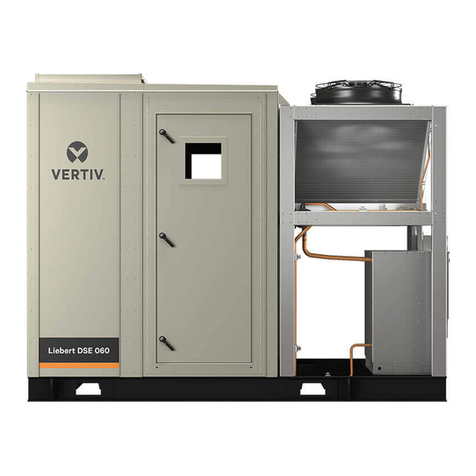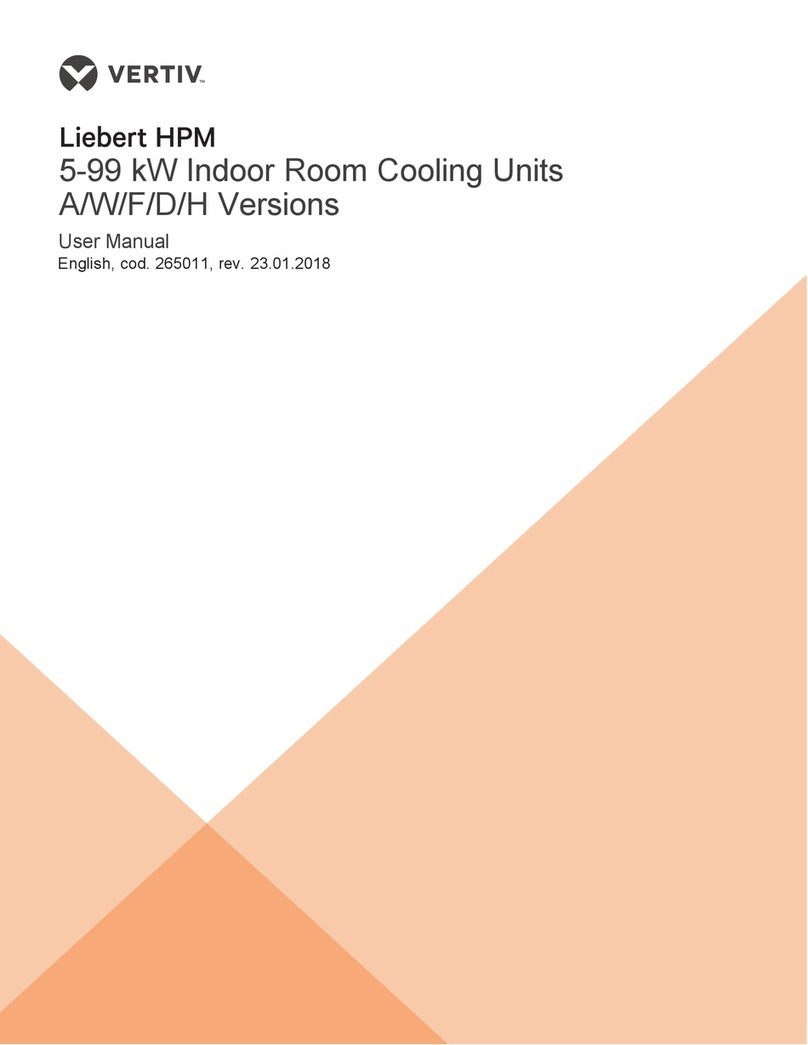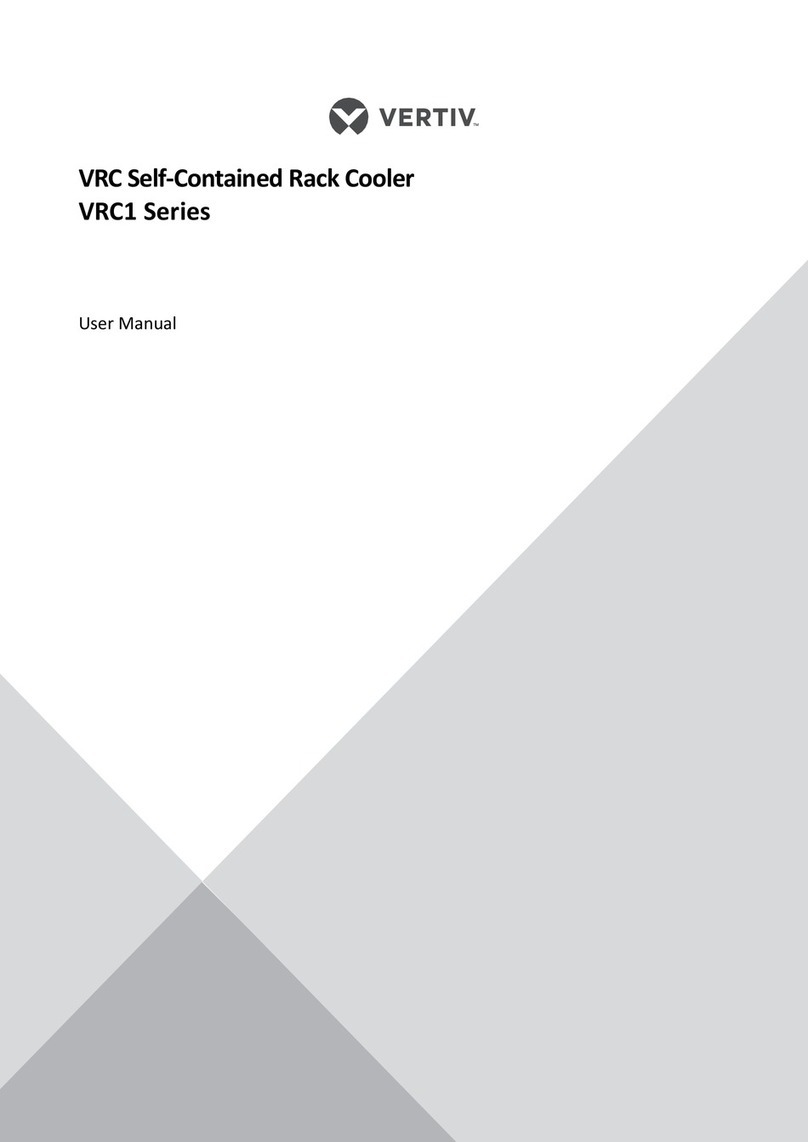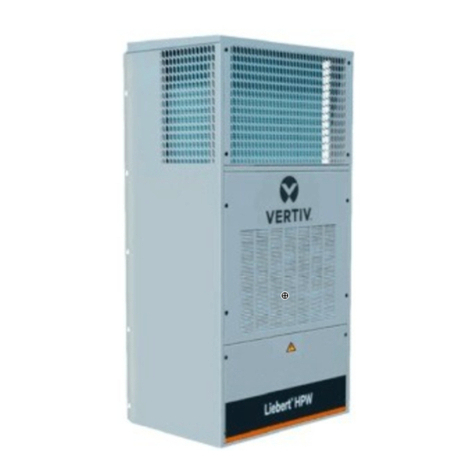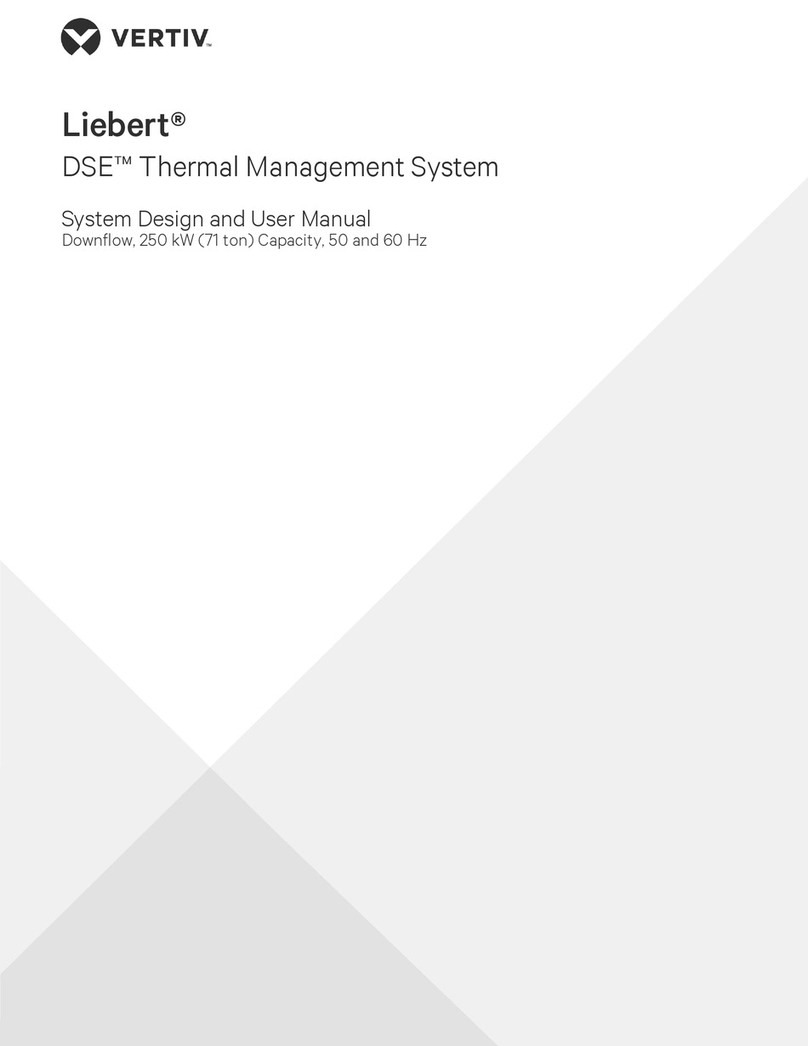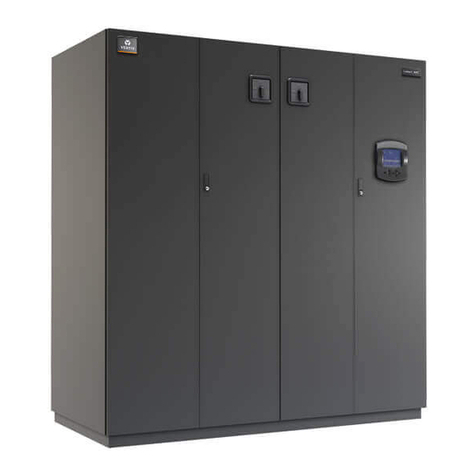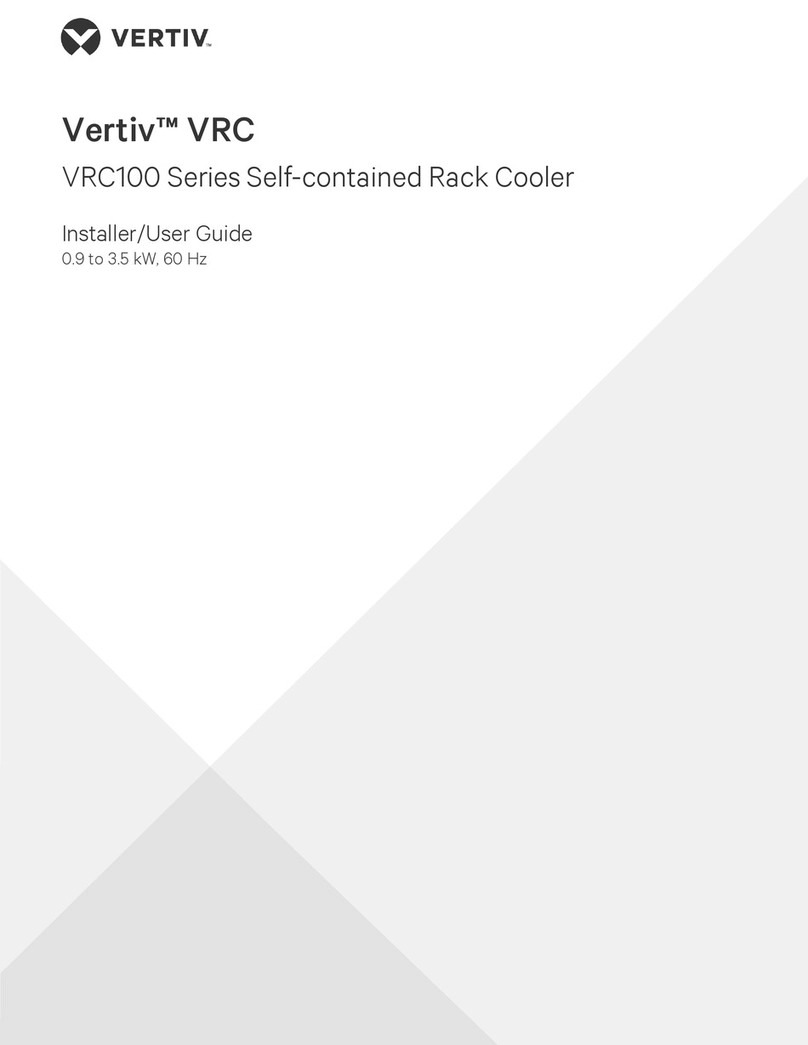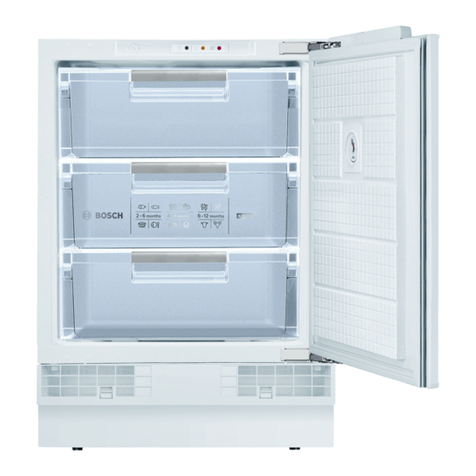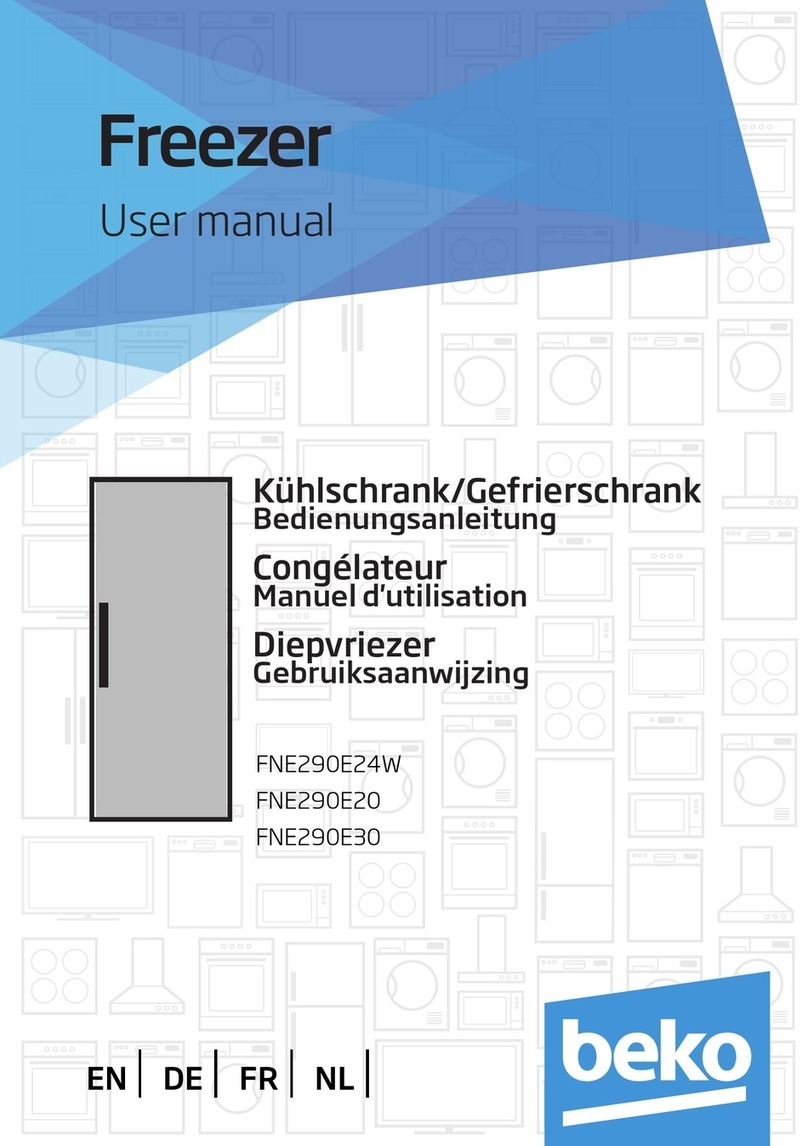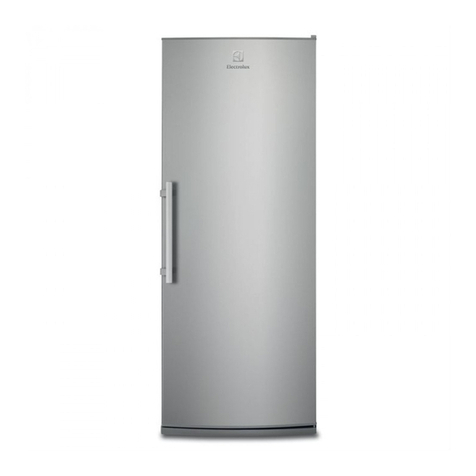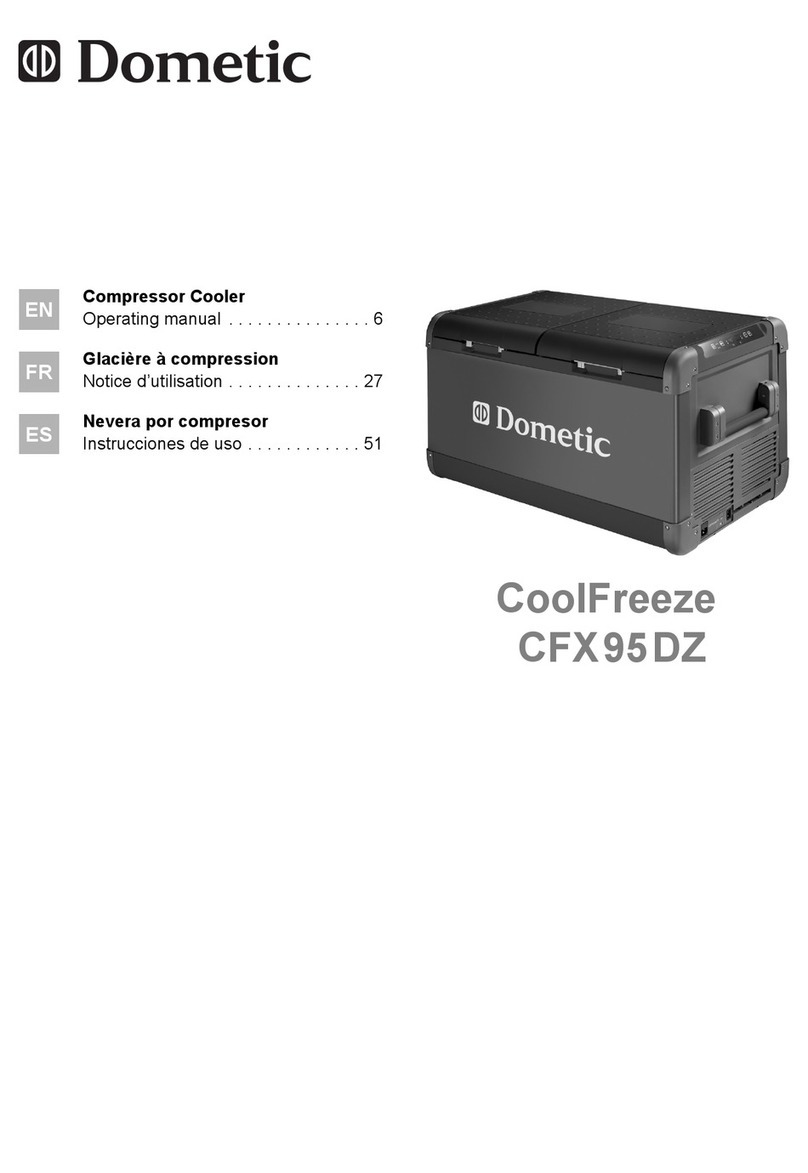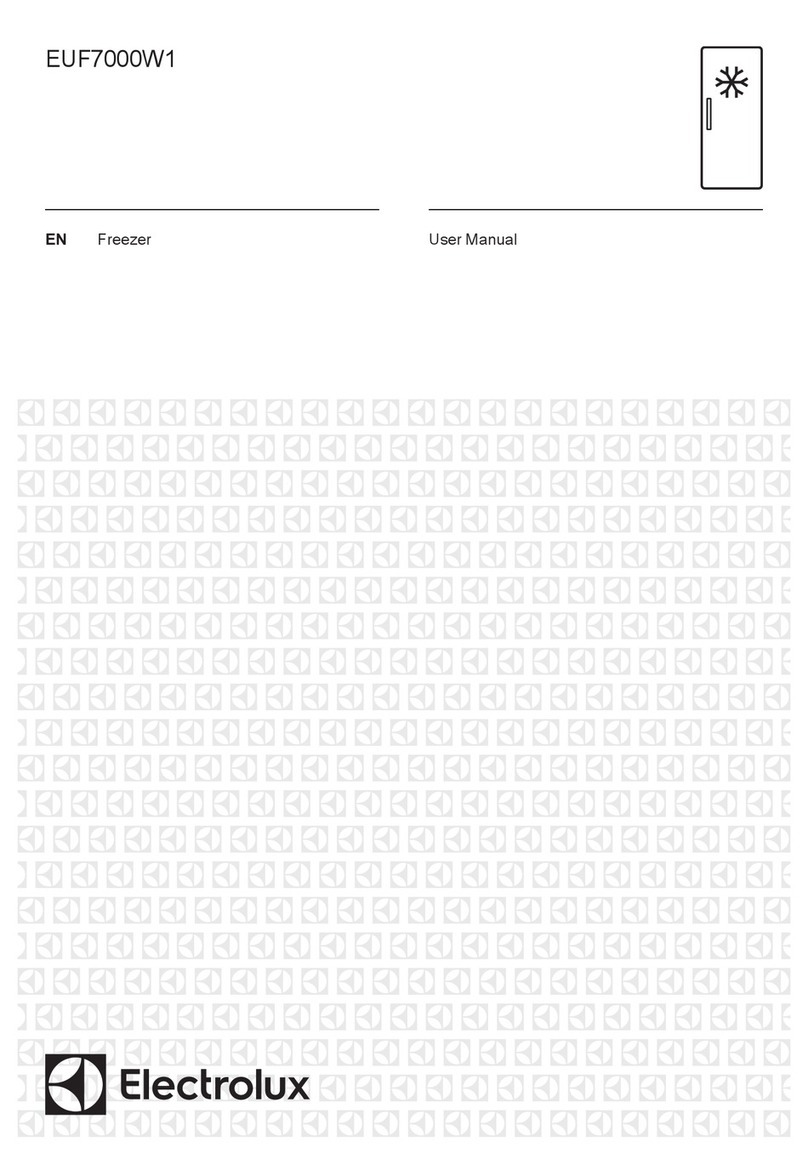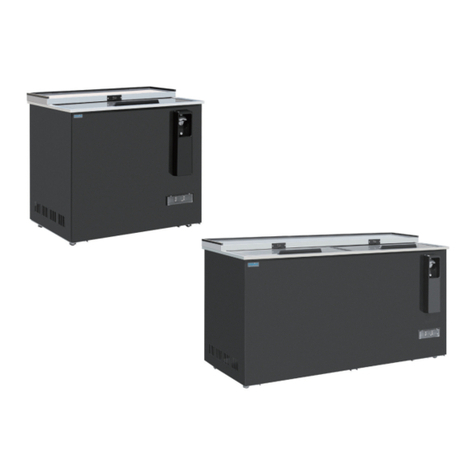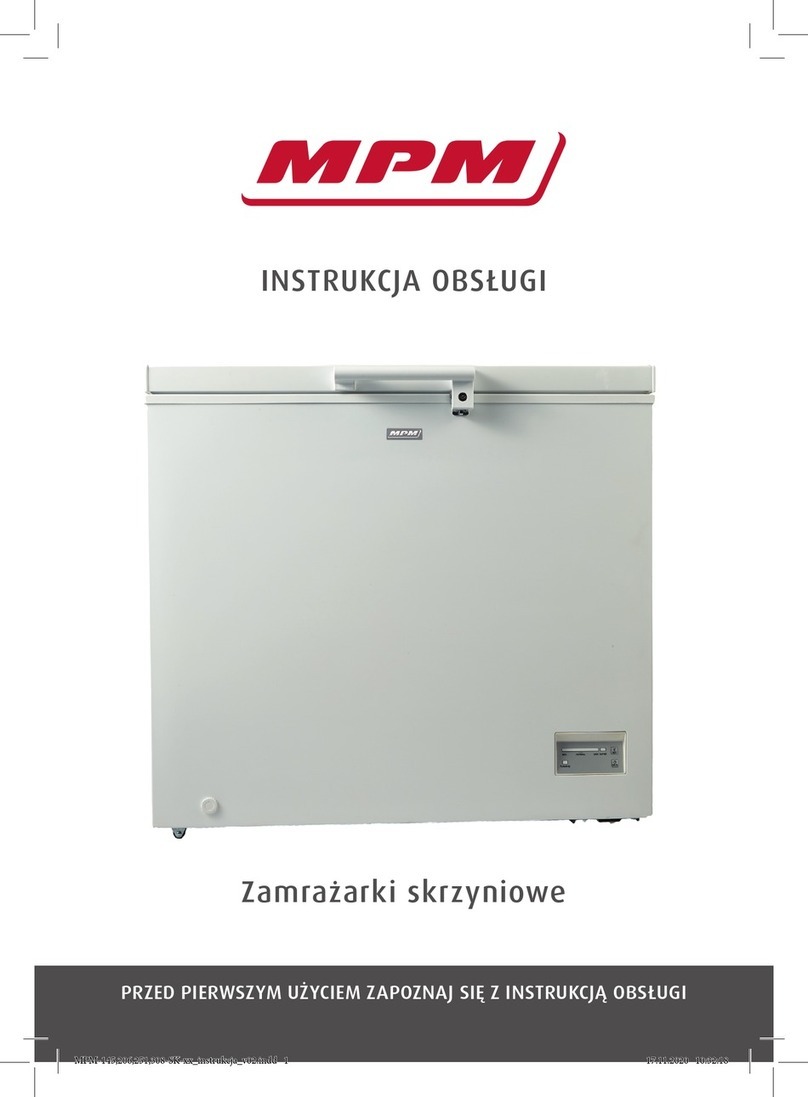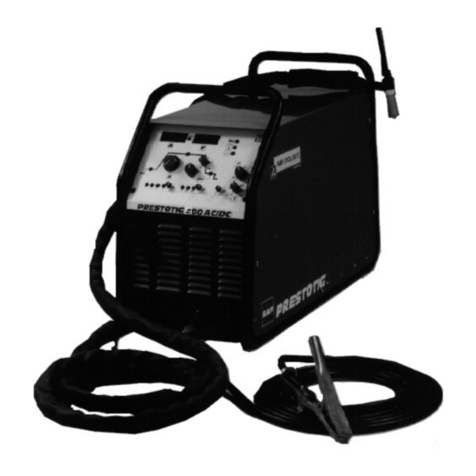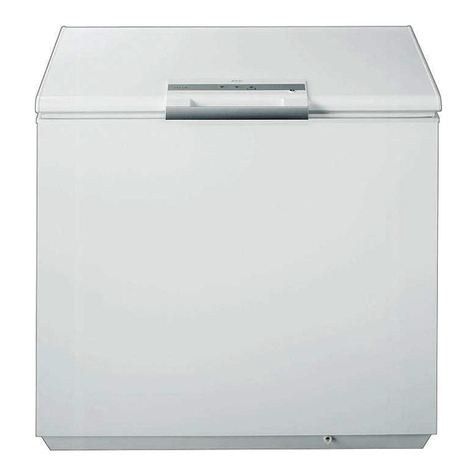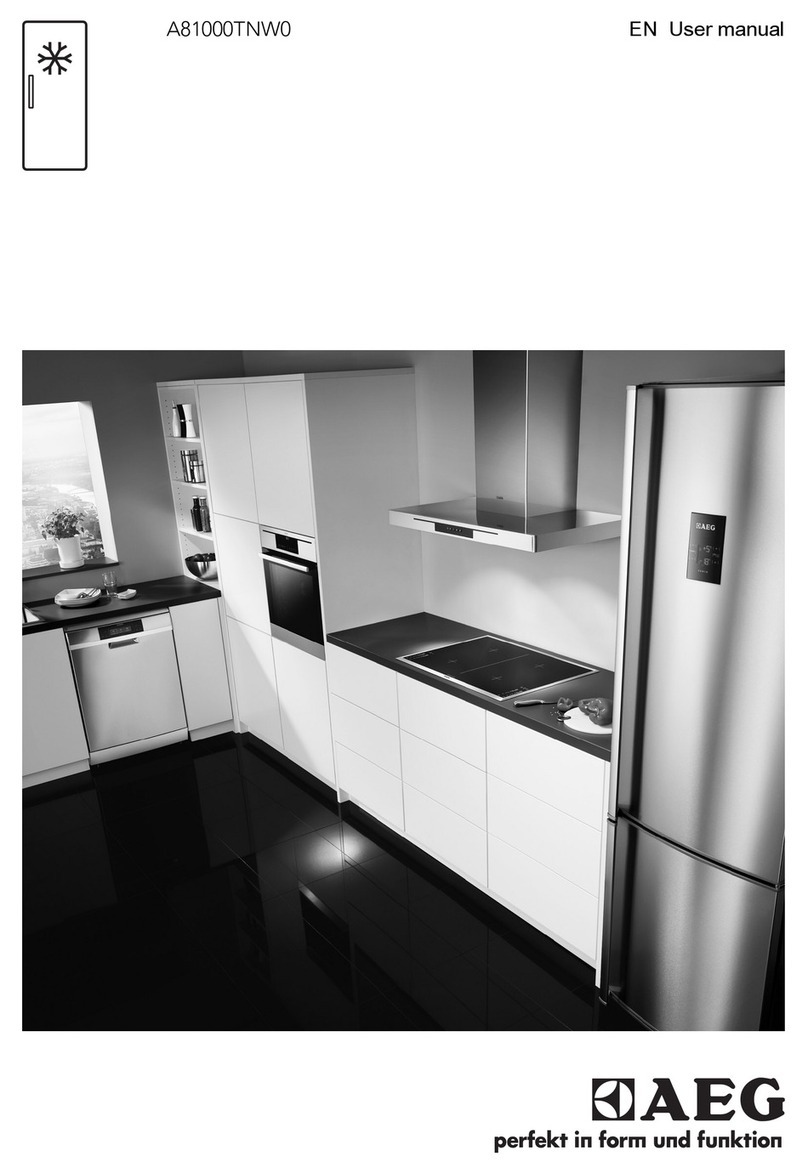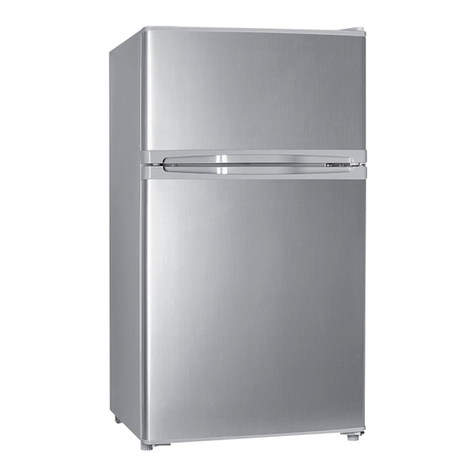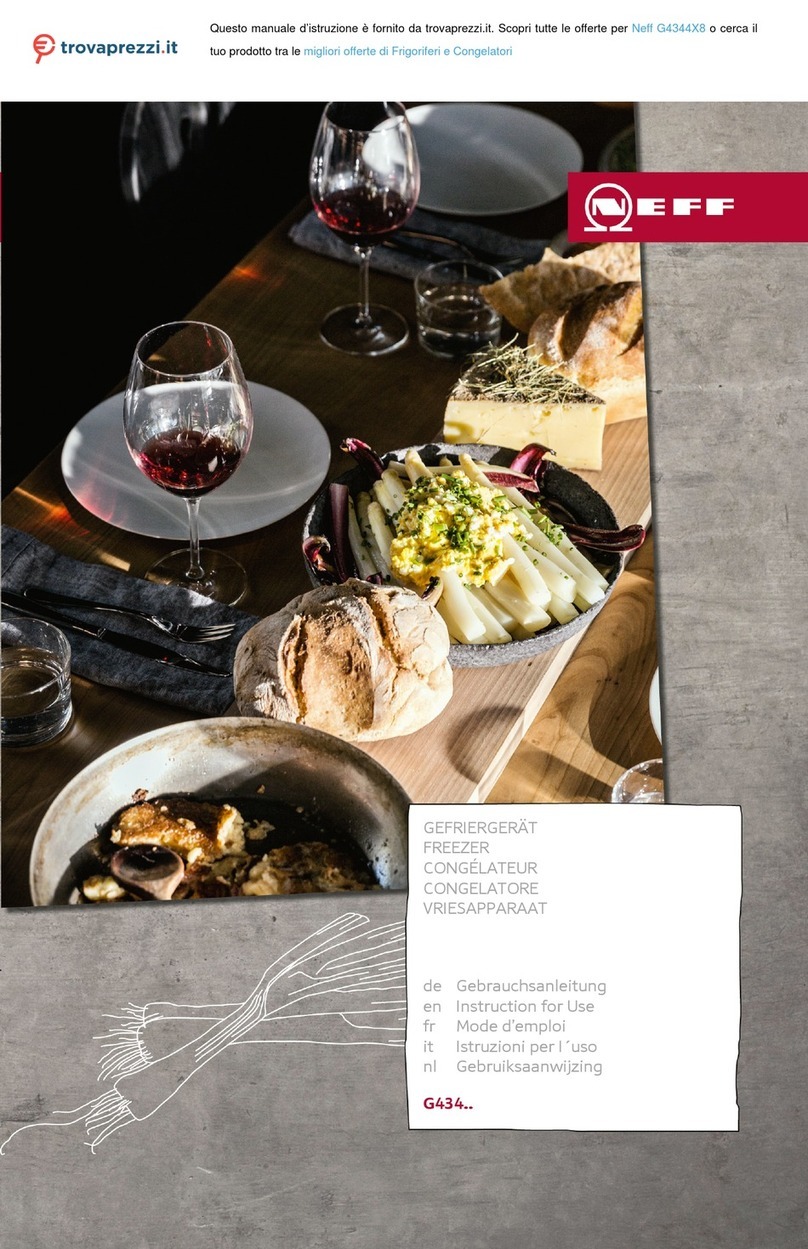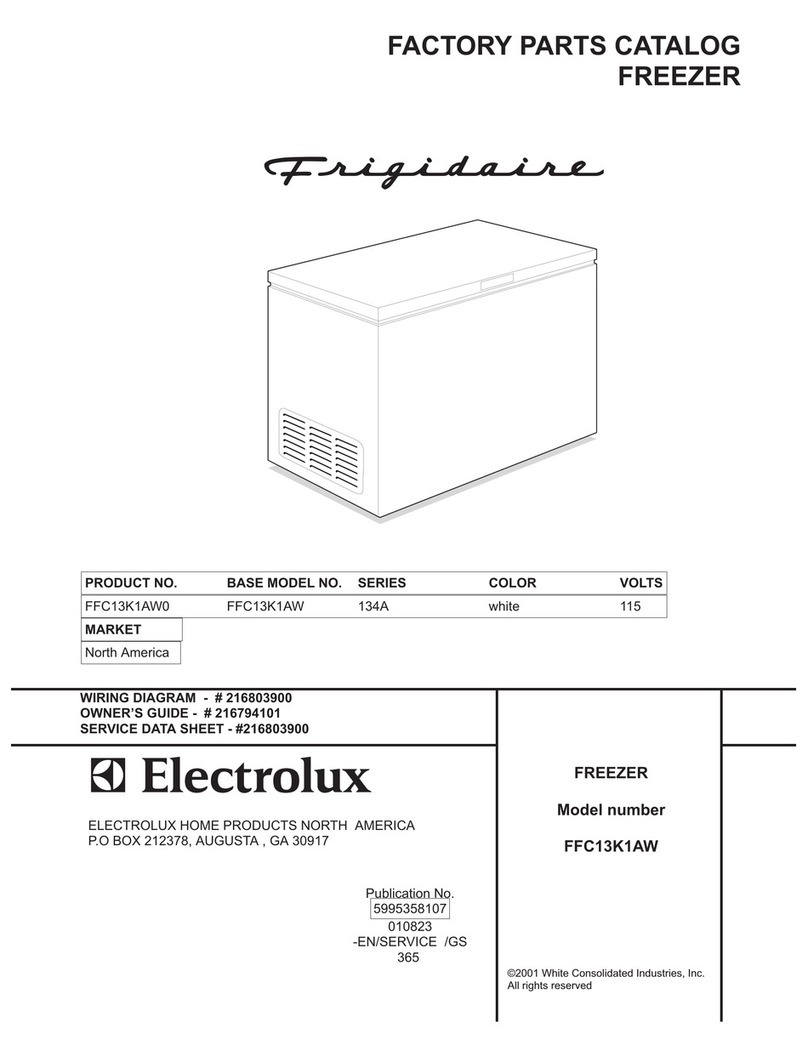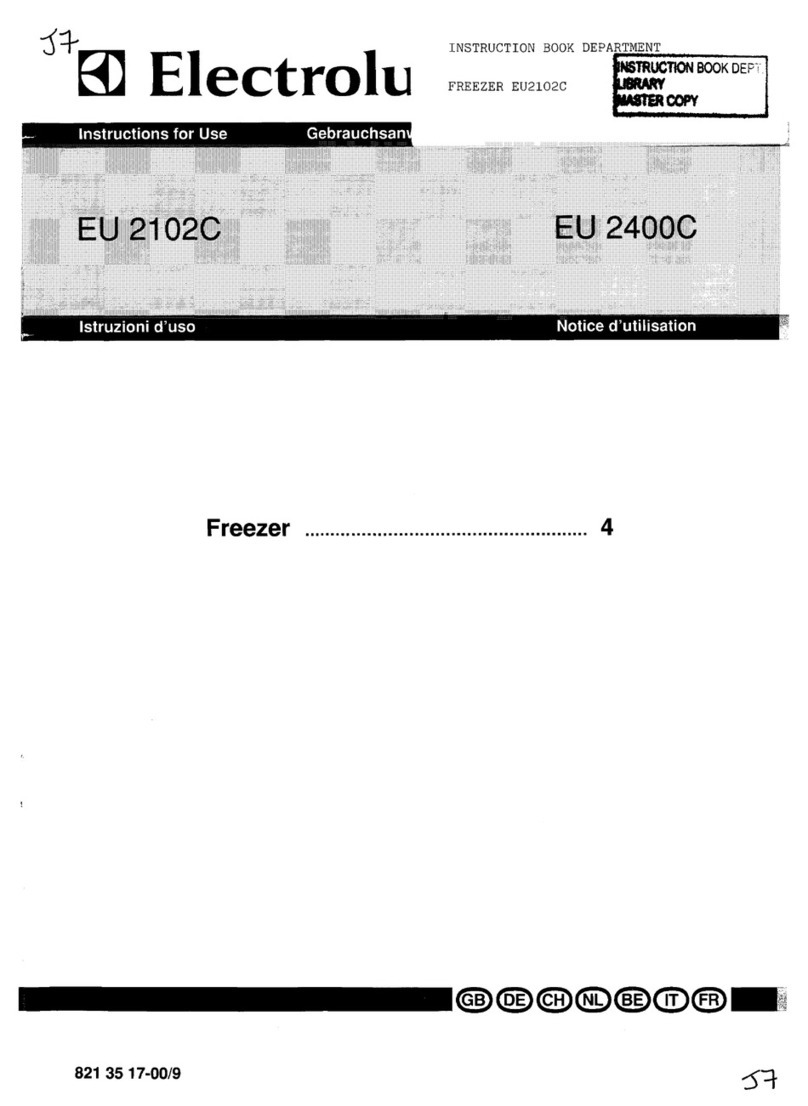
NOTICE
Risk of clogged or leaking drain lines and leaking water supply lines. Can cause equipment and building damage.
Can cause equipment and building damage.
Lines and joints must be inspected regularly. Improper installation, application and service practices can result in
water leakage from the unit. Water leakage can result in severe property damage and loss of critical data center
equipment. Do not locate unit directly above any equipment that could sustain water damage.
Vertiv recommends installing monitored leak detection equipment for the unit and supply and return lines.
NOTICE
Risk of piping system corrosion and freezing fluids. Can cause leaks resulting in equipment and very expensive
building damage. Heat exchangers and piping systems are at high risk of freezing and premature corrosion.
Fluids in these systems must contain the proper antifreeze and inhibitors to prevent freezing and premature coil
and piping corrosion. When the cooling unit or piping may be exposed to freezing temperatures, charge the
system with coolant fluid based on the coldest ambient design temperature. Automotive antifreeze is
unacceptable and must NOT be used in any fluid system. Use only coolant fluid solution that meets the
requirements of recommended industry practices. Do not use galvanized pipe.
The system coolant fluid must be analyzed by a competent fluid treatment specialist before start up to establish
the inhibitor and antifreeze solution requirement and evaluated at regularly scheduled intervals throughout the
life of the system to determine the pattern of inhibitor depletion.
The fluid complexity and variants of required treatment programs make it extremely important to obtain the
advice of a competent and experienced fluid treatment specialist and follow a regularly scheduled coolant-fluid
system-maintenance program.
Fluid chemistry varies greatly as do the required additives, called inhibitors, that reduce the corrosive effect of
the fluids on the piping systems and components.
The chemistry of the coolant fluid used must be considered, because some sources may contain corrosive
elements that reduce the effectiveness of the inhibited formulation. Sediment deposits prevent the formation of
a protective oxide layer on the inside of the coolant system components and piping. The coolant fluid must be
treated and circulating through the system continuously to prevent the buildup of deposits and/or growth of
sulfate reducing bacteria. Proper inhibitor maintenance must be performed to prevent corrosion of the system.
Consult fluid manufacturer for testing and maintenance of inhibitors.
Commercial-grade coolant fluid is generally less corrosive to the common metals of construction than water
itself. It will, however, assume the corrosivity of the coolant fluid from which it is prepared and may become
increasingly corrosive with use if not properly inhibited.
Vertiv recommends installing a monitored fluid-detection system that is wired to activate the automatic closure
of field-installed coolant fluid supply and return shut-off valves to reduce the amount of coolant fluid leakage and
consequential equipment and building damage. The shut-off valves must be sized to close-off against the
maximum coolant-fluid system pressure in case of a catastrophic fluid leak.
NOTICE
Risk of no flow condition. Can cause equipment damage. Do not leave the water/coolant fluid supply circuit in a
no flow condition. Idle fluid allows the collection of sediment that prevents the formation of a protective oxide
layer on the inside of the tubes. Keep unit switched On and water/ coolant fluid supply circuit system operating
continuously. In multiple unit teams, allow standby units to enter the rotation automatically or schedule regular
manual rotations.
1 Important Safety Instructions 3
Vertiv™ Liebert® XDP with iCOM™
